How blockbuster games are written
The writers behind games like Arkham Knight, Gears of War 4 and Spec Ops: The Line discuss the challenges they face in development.
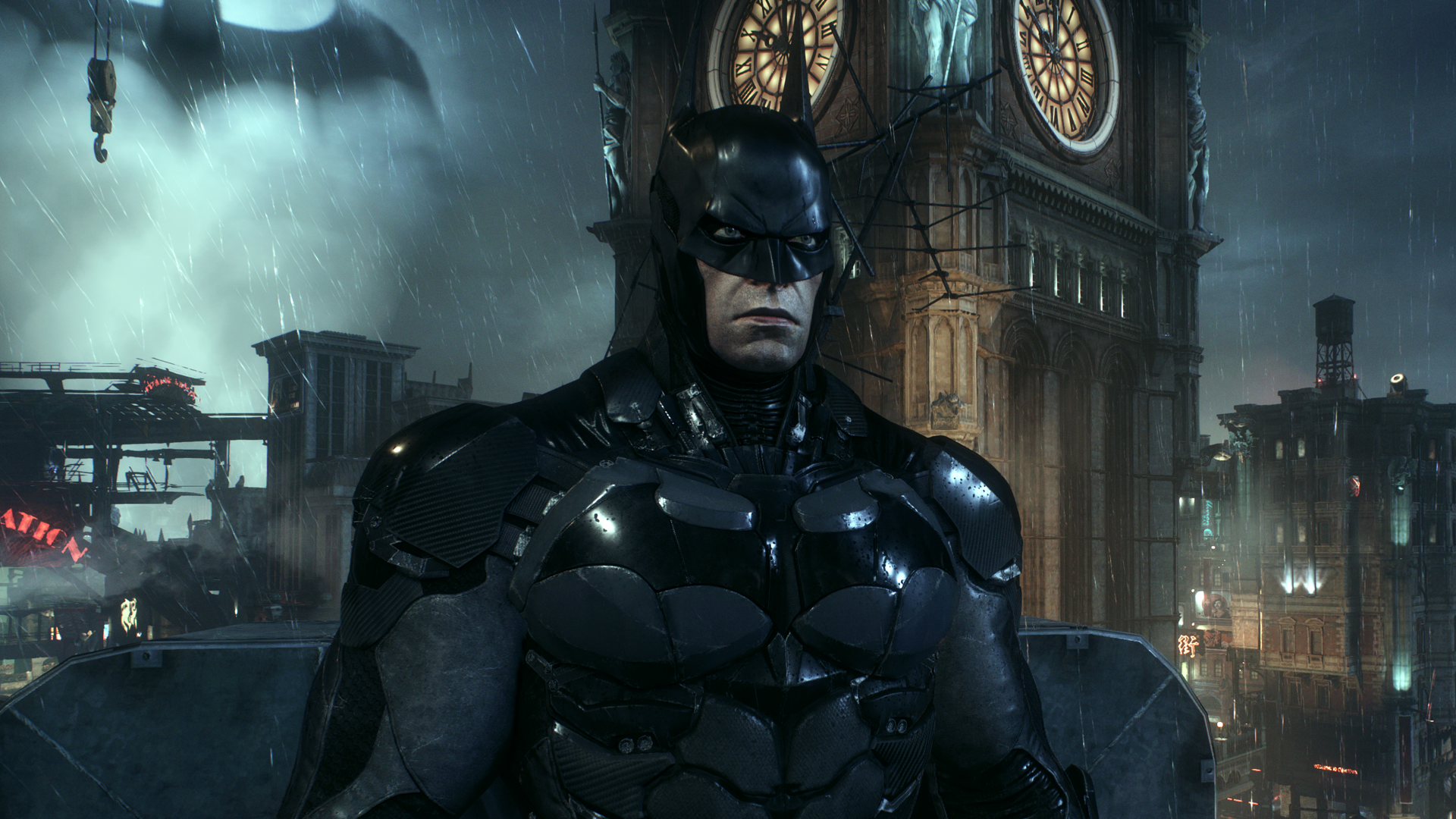
Computer games are made out of a lot of things. Level geometry and music, shader effects and AI, physics systems and sound effects, textures and scripting. And words. Words of dialogue, plot, lore and backstory. Words for the menus and tutorials. Words for store pages and pitch documents and documentation of their systems. Even games that do their damnedest to avoid using words to tell their stories—even games that apparently have no stories at all—they're all still built on thousands of the things.
Writers therefore take a central place in game development, perhaps more central than you might expect. Working alongside artists and designers and every team, they help to build a game's world, stitching all its often divergent parts together into a form that makes sense to you, the player. To put it succinctly, writers make the glue that holds a game together.
Tom Bissell, who was lead writer on Gears of War 4 and has credits on What Remains of Edith Finch, Battlefield: Hardline, and the Uncharted series, boils down game writing to three fundamental roles: "Understanding what a game is trying to do; creating an involving space for the player's experience; and working collaboratively with dozens and sometimes hundreds of human beings, not all of whom will have your taste or inclinations."
But how do game writers work? What do they write? Where do they fit in that grand collaboration? And can they do their job better?
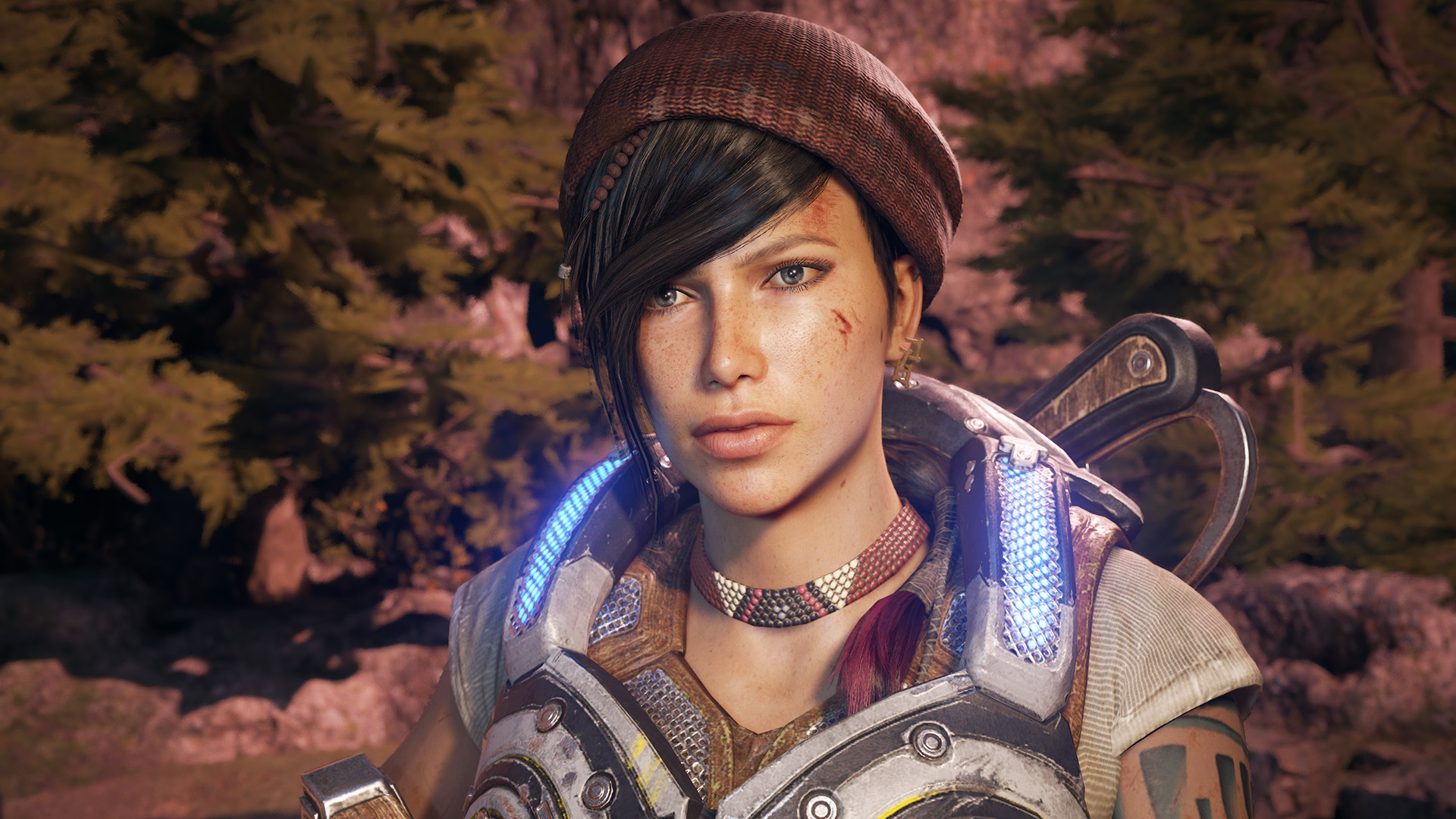
Writing from the start
Increasingly, writers get started on a game from its very beginnings. "Having a writer on the team in pre-production essentially gives you someone who has the broad view of the whole game," says Walt Williams, who was lead writer of Spec Ops: The Line, is author of excellent game development memoir Significant Zero, and has credits on many other games, including Star Wars: Battlefront II and The Darkness II. "The designer is thinking about the systems they want to build, the environment and character artists are thinking about the style, and they're not necessarily crossing over much, whereas the writer is meeting with all the different teams and taking their ideas, brainstorming and coming up with more stuff in their realm."
"If there's not someone concentrating on the narrative from the beginning, that can often feel very disjointed and you'll end up with the game not feeling right," says Phil Huxley, a former writer at Rocksteady who's now behind adventure game Du Lac & Fey: Dance of Death. "Why is the character suddenly doing this? Why are we suddenly here?"
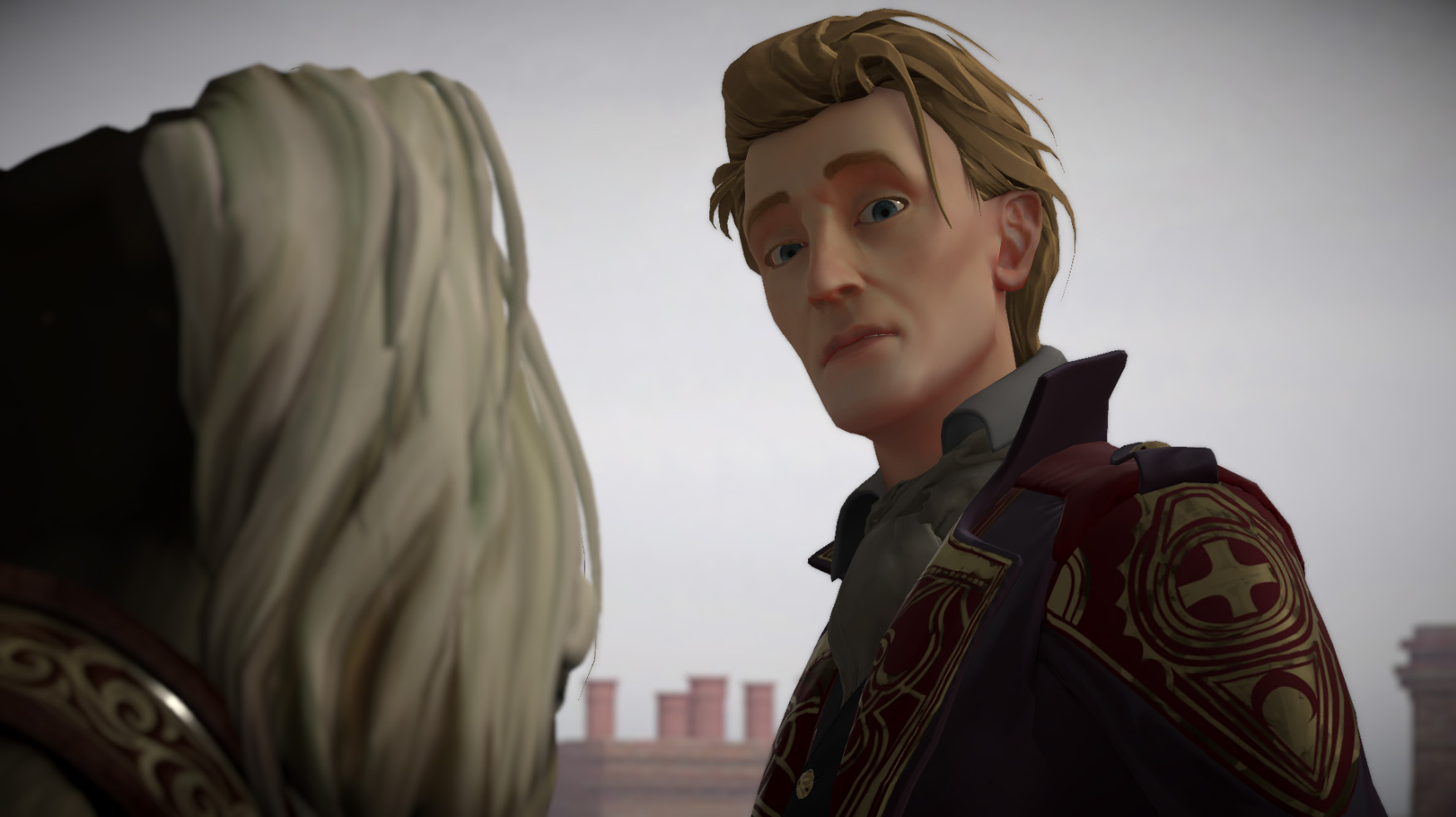
The shape that writing takes during preproduction varies, but artists might come to a writer with an idea for an environment, and the writer will then imagine a story that will help the artists to draw concept art for it. They'll imagine who lives in this world, what else is in it, a fictional history that explains how its present came to be.
Keep up to date with the most important stories and the best deals, as picked by the PC Gamer team.
Writers might also meet with a game's designers to discuss its core design and start to plan how the narrative will be told within it. So we've a game about pirates looking for a lost treasure. What kicks off their quest, and how did they find out about the booty? What's the twist when they find it? If it's some free-roaming game that allows players to tackle its goals in whatever order they wish, how might the story work?
"You're constantly just generating, throwing stuff at the wall, and the wall is the creative director and you’re seeing what sticks," says Williams. “During this period you’re dealing with a lot of, 'I don't know what I want but I'll know it when I see it' mentality."
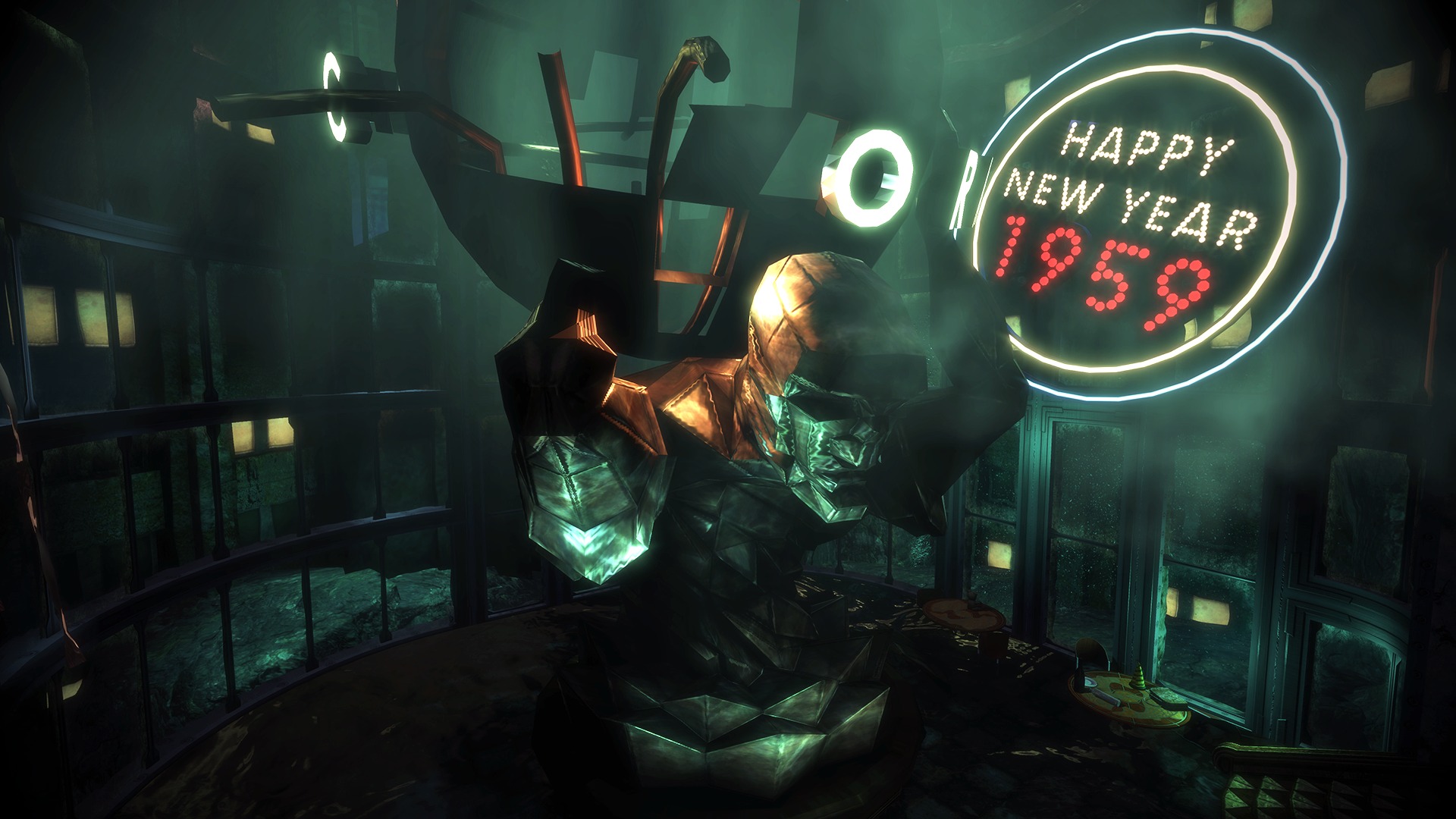
Place in the pecking order
So writers can play a central role making games, but let’s be real about the place of story and narrative in them. As Williams says, "As much as we like to say that videogames can be a narrative medium, financially they're really not. It can elevate a great game to a legendary game, and it can elevate a bad game, but Spec Ops [The Line], that's a game that has earned the label of cult classic but people play it because it's on sale for three dollars. Everyone knows Spec Ops so it feels like it was a successful game, but it was not successful at all."
And the writers' place in a game project comes down to who's leading it. Think about some of the strongest narrative-driven games, where story and theme and play are all bound together, like the BioShock series and Naughty Dog's games at Sony, and the creative directors who forged them—Ken Levine, Amy Hennig—all came from writing backgrounds. "It's only truly important if the creative director identifies as a writer," Williams says. "If they don't, then writing is expendable." Writers' place in the pecking order can therefore change drastically between projects.
Bissell has found his position on the games on which he’s worked has been largely a matter of happenstance, because he’s a freelancer, depending on what capacity he’s been brought in. "But the games I've been a lead writer on, I've always felt like I had a seat at the table, and have worked with people who understand that there’s no such thing as the 'game' part of the game and the 'story' part of the game; it's all the same thing. You have to view a game and the experience you’re trying to provide players holistically."
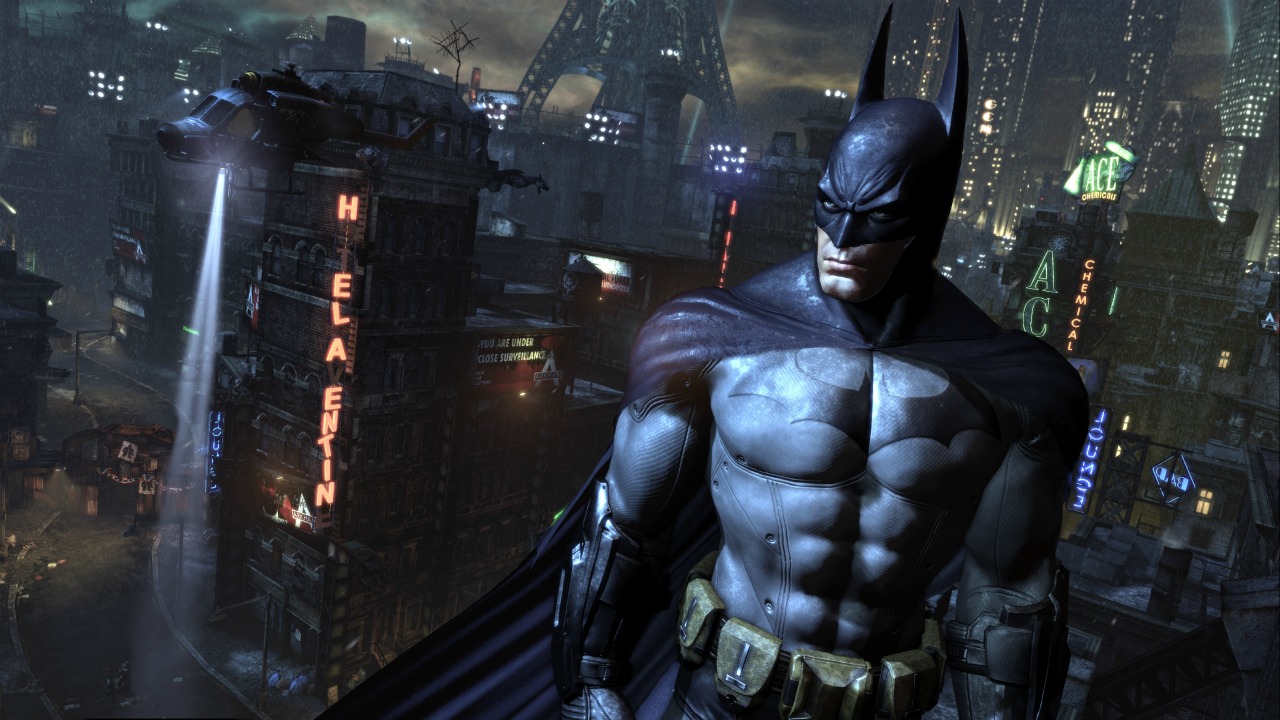
Huxley has been lucky to work at studios, like Rocksteady, which value writing. There were always meetings that he didn't get to go to, usually just the high-level director ones, but he's felt his expertise has been sought and that writing has always been valued. "You hear the horror stories of where it isn't, and writers get referred to as narrative paramedics, but that's definitely changing, at least from my perspective."
Call the narrative paramedic
Narrative paramedic. A term coined by Tomb Raider writer Rhianna Pratchett, it refers to the situation in which a game goes through a major change, such as a level or feature getting cut, and writers are asked to glue it all back together so the story makes sense and everything ties up again. It's an example of the way in which writers are important and deeply involved, and also can also be tossed around by the tumult of game development.
Words are, after all, cheap. They're not painstakingly sculpted, textured and rigged like character models, or meticulously planned, laid out and scripted, like levels. They're just words, easily reordered, deleted, and re-written. "You have to throw out stuff you're passionate about, trashing ideas you love," says Williams. “No other discipline in game development has to deal with that as much as writing. Everyone else has a certain amount of autonomy, they're considered the masters of their domains."
Games can go wrong in so many ways that have nothing to do with who the writer is or how well or poorly he or she or they are treated
Tom Bissell
And anyone can type words. "Everyone writes, whereas not everyone designs or codes, and I think people feel they have a stake in it," says Huxley, who has also found that other departments tend to feel they can take an active role in writing, but the buck stops with the creative director.
"I've seen changes take place and you can voice your opinion of what they might do to the story or the game as a whole, but I've not been in a position to push back. It's quite challenging sometimes, but you've got to appreciate that it's someone else's vision and that experience matters. You have to trust they're making the right decisions."
Making cuts
Still, cutting and editing is an essential part of writing. And game writers are commonly asked to cut their scripts from, for example, a projected 90 minutes of fully animated cutscenes to 70 minutes because the full thing doesn’t fit into the budget.
If the dialogue can be shortened and streamlined across multiple scenes to achieve the cuts, then that's great. But writers can also employ smarter—or sneakier, depending on the way you look at it—ways of retaining their script, by presenting some scenes as part of gameplay rather than as discreet cutscenes.
"Someone's still going to have to create that explosion and all the assets, but it’s not falling under the cinematic budget, it's now falling under the level design budget,” says Williams. “It's about finding the spare resources on the project and fitting it into them."
But when a scene is entirely canned, it's not a disaster. It's a design challenge. Since the writer knows what narrative beat it was intended to accomplish, they'll rewrite in a way that takes the restrictions into account while also accomplishing the same beat, and then bridge the gaps left by the scene's removal.
How open worlds are written
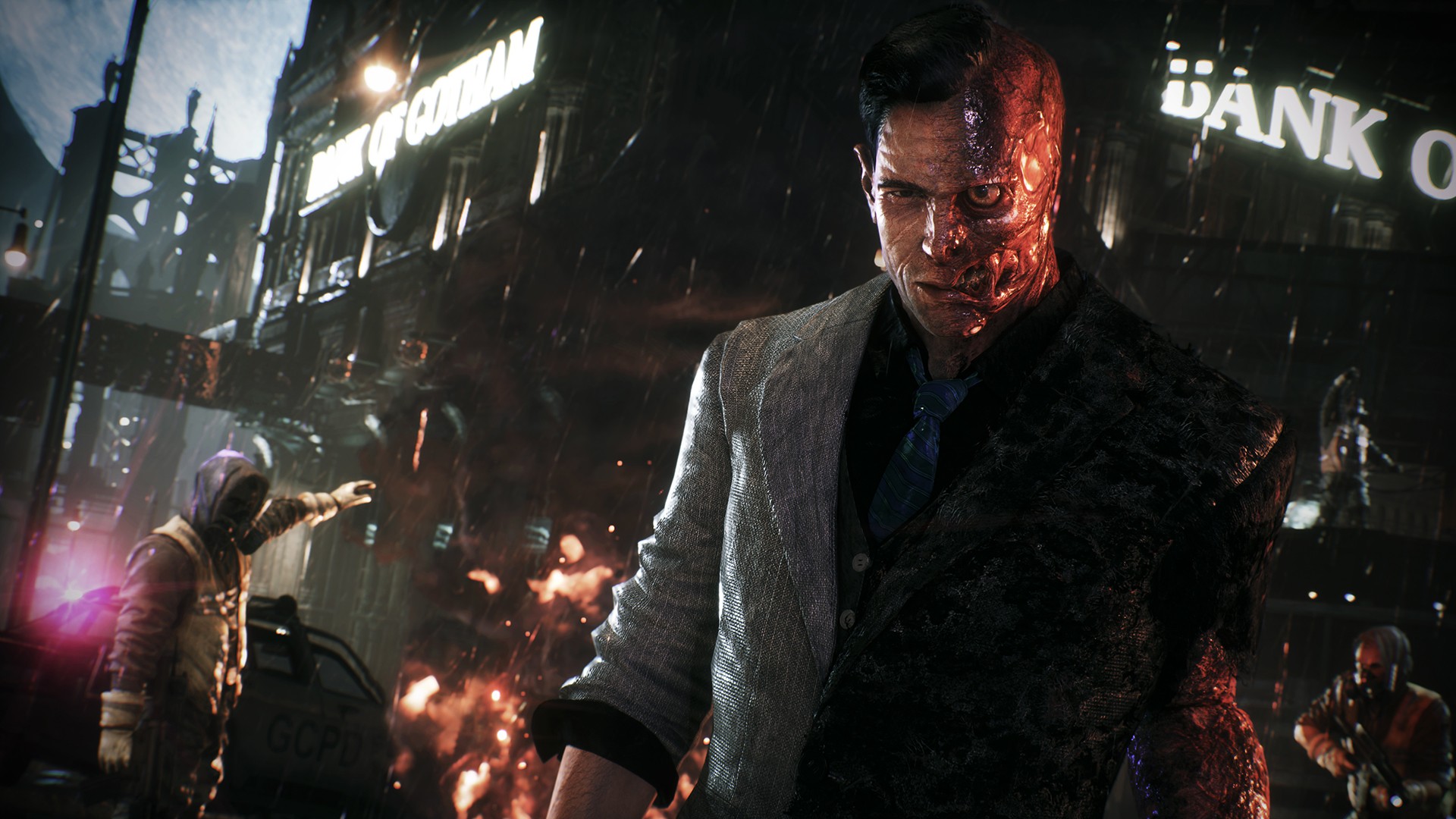
As writing, cutting and re-writing continues throughout a game's development, one of the big challenges for writers is ensuring the dialogue and narrative remains consistent. Huxley finds that even keeping a full view of Dance of Death, on which he's the sole writer, is tricky. Expand that out to the non-linear and vast scale of an open world and you can appreciate how difficult to maintain a coherent voice.
"It's about having a writer own certain systems rather than spreading it across several people. That's when you can lose that consistency of voice," Huxley says. Rocksteady gives its writers ownership of specific parts of the game so they see them from beginning to end, such as a single character, like Riddler, or the conversations you hear as you grapple around the city.
Our biggest mistake is that we've decided to consider AAA games as something better than they are
Walt Williams
"And it's had the shit played out of it," he adds. Huxley and his writing colleagues played Batman: Arkham Knight for months before it shipped, so Huxley could get a sense of how thugs' conversations fitted into the flow of play and tweak them as necessary, even if their voice performances were already done. "That's the beauty of that level of polish."
Williams says, however, that the lead writer's role on an open world game really should keep a handle on everything, whether systems designers writing their own NPC barks or artists designing their own signs. "You have to be the one to constantly have your eye on all of it and then fucking yell at people when they step out of line and do stupid stuff that doesn't match with the tone of everything else. You also need to accept the fact that while the game will be better, you will not be liked."
How can games be better written?
But whether writers really hold the key to better stories, that's another question. For Bissell it's a misconception that they'd improve if only writers were more integral with development. "Sorry, but that's just not true in my experience. Games can go wrong in so many ways that have nothing to do with who the writer is or how well or poorly he or she or they are treated. Sometimes cleaning up the mess in a wayward game falls on level design and sometimes art and sometimes narrative, but this idea that games have 'shitty stories' because there aren't good writers in the industry, or that writers aren’t listened to, is, to be perfectly frank, a deflection."
Bissell says that games have 'shitty stories' because games are often simply absurd. "That’s not a criticism, it's an acknowledgment of the reality that stares anyone working on an action game right in the face." These aren't his examples, but think about Lara Croft weeping over killing an enemy soldier in a cutscene and then happily murdering a platoon of them fifteen minutes later, or crashing your Far Cry 5 airplane, befriending a bear, and then getting into a serious conversation with a prepper who's torturing a cult member.
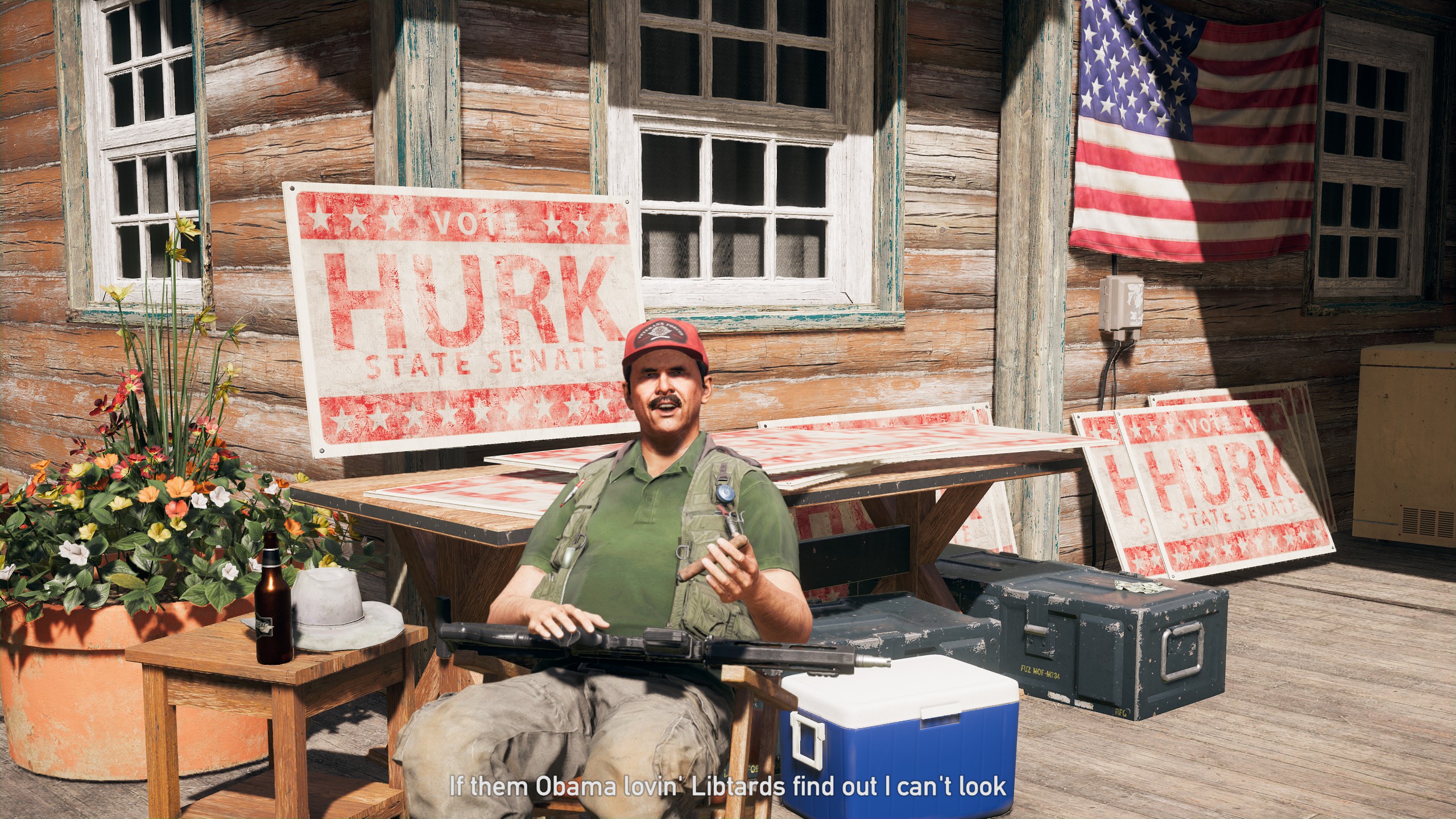
"The only way you escape the absurdity problem is through sheer force of will, and you can do that only when the prime creative force behind the game is also overseeing virtually every aspect of it," Bissell says. "That's not a position most game writers will ever find themselves in, obviously." And so for Bissell, the best common solution is to lean into the absurdity, to celebrate the gaminess of games.
Williams agrees. "Our biggest mistake is that we've decided to consider AAA games as something better than they are," he says. "We like to think our super-silly destruction derby arena is a piece of serious art that can say something meaningful."
Writing spans every aspect of the making of games, and is both utterly integral to them and also the first to be cast aside. That makes writing one of the most challenging roles to do well, as Bissell explains: "When I'm asked, and I'm often asked, by younger people, 'How do I get into writing videogames?' I ask them, 'Do you want to tell meaningful, personal stories?' When they say yes, and they always say yes, I say, 'Then maybe don't write videogames.' I'm not trying to be snide when I say this, or discouraging. But the fact is, videogames are highly collaborative and complicated, possibly the most complicated popular art form ever created."

